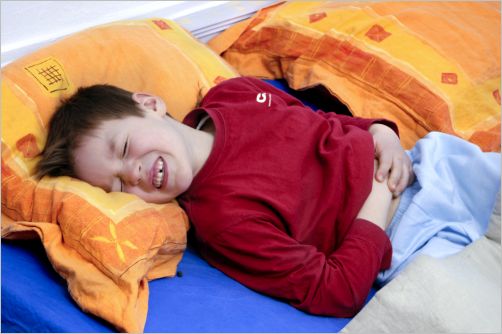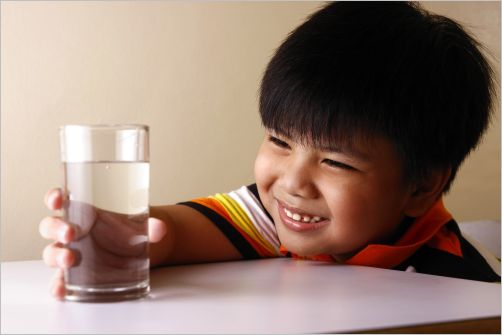The Truth About Toddler Diarrhea
Symptoms and Treatments
Toddler diarrhea is very irritating and unpleasant. Your poor child is so uncomfortable, and miserable.
Although diarrhea is common in infants and toddlers, there may be several different causes. Diarrhea is usually caused by a stomach virus, especially if it is also associated with vomiting and low grade fever.

Most cases go away on their own without treatment, except extra fluids to prevent dehydration. However there have been times that my poor toddler had diarrhea for 10 days and I felt so bad for him. He ended up having the Rotavirus and was miserable. We are going to explore why your toddler may have diarrhea and what exactly you can do about it.
Common causes of Toddler Diarrhea include:
Acute Viral Gastroenteritis:
is a very common problem in infants and toddlers and is usually caused by a stomach virus, such as the rotavirus.
Symptoms include:
- Fever
- Stomach Ache
- Vomiting
- Watery Diarrhea
Although the vomiting typically lasts only two to three days, the diarrhea can last for one to two weeks before it finally resolves. There is no cure or medicine to treat gastroenteritis, but there are many things that can be done to help your child through this illness, including giving extra fluids to prevent dehydration. A rotavirus stool enzyme test is available, and can help to diagnose children with rotavirus, which is sometimes helpful to make sure that they do not have another cause of diarrhea.
Food Poisoning:
Almost any food can become contaminated by a virus, bacteria, or parasite and cause food poisoning. Foods can also make you sick if they are contaminated with pesticides or other toxins.
The most common symptoms of food poisoning include:
- Vomiting
- Diarrhea
- Stomach Cramps
- Nausea
- Fever
These symptoms begin a short time after eating a contaminated food. In most people symptoms are mild and clear up quickly without treatment, but food poisoning can lead to dehydration, kidney failure and even death.
Diarrhea is also a common side effect of taking antibiotics:
Postinfectious Diarrhea:
This sometimes occurs in children with gastroenteritis and may be from intolerance to lactose or proteins in cow's milk. Soy milk or formula (for younger children) may be helpful for children with this condition.
Toddler's Diarrhea:
Usually occurs in children between the ages of 6 months and 3 years, and causes loose, watery stools in children without other symptoms. Although they have chronic diarrhea, children with toddler's diarrhea should have a normal appetite and will be growing and developing normally, and usually drink too much juice. If your doctor suspects that you child's diarrhea is from this condition, then it may help to decrease the amount of fluids your child drinks, and especially avoid juices with a high sorbital or fructose content, like apple and pear juice. Instead, give him orange and grape juice. It may also help to increase the amount of fat and fiber in his diet.
Irritable Bowel Syndrome:
Children with IBS have cramps and abdominal pain, bowel movements that alternate between normal, constipation and diarrhea.
Lactose Intolerance:
Toddler diarrhea, abdominal pain, bloating, gas and weight loss can occur in children who don't have enough of the enzyme lactase to digest lactose in the foods they eat. While some children do have to avoid all products with lactose, others are able to handle some foods, such as yogurt, and other foods after taking a lactase enzyme supplement. Soy milk is a good alternative for children with lactose intolerance.
Treatment Options for Toddler Diarrhea

Toddlers with diarrhea present special concerns because of their smaller body size. This small body size puts them at greater risk for dehydration from diarrhea. Therefore, treatment for toddler diarrhea is focused on preventing, or if necessary, treating symptoms, such as dehydration, that occur as a result of the diarrhea.
Preventing or treating dehydration in toddlers focuses on replacing lost fluid and electrolytes (sodium and potassium). Giving special fluids by mouth (oral rehydration therapy) is the most effective way of doing this. Oral rehydration treatments (such as Pedialyte ) can help prevent most dehydration. You can find these special fluids in most pharmacies and grocery stores; they can be purchased without a prescription. They also come in popsicle form which are great for toddlers who don’t feel like drinking any liquids.
Special Note Parents:
Did you know that Rehydration fluids have a brief shelf life? Once a bottle has been opened or a mix prepared, it must be used or thrown out within 24 hours because bacteria rapidly grow in the solution.
Remember that these liquids will not stop the diarrheal illness. In fact, the toddler may have even more episodes of diarrhea until the illness runs its course. Remember, never restrict fluids when your child has diarrhea, even if they keep having episodes they need to keep being hydrated.
When to See the Doctor
If your toddler has had diarrhea for more than 24 hours, call his or her pediatrician. You should also call your toddler's healthcare provider if your toddler has:
- Watery diarrhea with repeated vomiting
- Stool containing blood, mucus, or pus
- A temperature above 101.4 degrees Fahrenheit
- Severe diarrhea (more than eight bowel movements in eight hours)
- Signs of dehydration, such as:
- Frequent crying or irritability
- Sunken abdomen, eyes, or cheeks
- Listlessness or irritability
- Dry mouth and tongue
- Skin that does not flatten when pinched and released
* I am not a Doctor or Licensed Professional in the field of toddler diarrhea. I am a stay at home Mom passing on tips, advice and information that are based on my opinions. Always remember to consult your pediatrician with serious questions concerning your child and sickness.*
Have Any Toddler Diarrhea
Concerns or Comments?
Please Share your concerns or tips with us about this issue. You may have some advice that will help other moms concerning this subject matter. We want to hear about it!
Special note: After you submit your comments, be sure to put a check mark in the boxes on the thank you page at the bottom, and enter your email address. This will ensure that you receive a response after I Answer your question Thanks...
Read Other Great Tips
From Parents Just Like You
Click below to see contributions from other visitors to this page...
Toddler Diarrhea For 6 Days 




My 2 year old has had diarrhea for 6 days. She has no fever and eats and drinks good. She is not irratable or in pain, etc. I am not sure if I should …
Diarrhea in Toddler 




Hi
My grandson keeps having diarrhea every other week. He's a very picky eater and only drinks soy milk, dry cereal for breakfast and dinner is white …
My son is experiencing diarrhea 




My two and a half year old son has had five loose bowel movements (containing mucus)in the last five hours, in this time he has only passed urine once …
Diarrhea And Vomiting Not rated yet
My 13 month old little boy suffered with a viral infection a couple of weeks ago, he was all better up until a couple of days ago, he is now vomiting and …
Leave Toddler Diarrhea and return to Child Health
Leave Toddler Diarrhea for Toddlers Home
New! Comments
Have your say about what you just read! Leave me a comment in the box below.